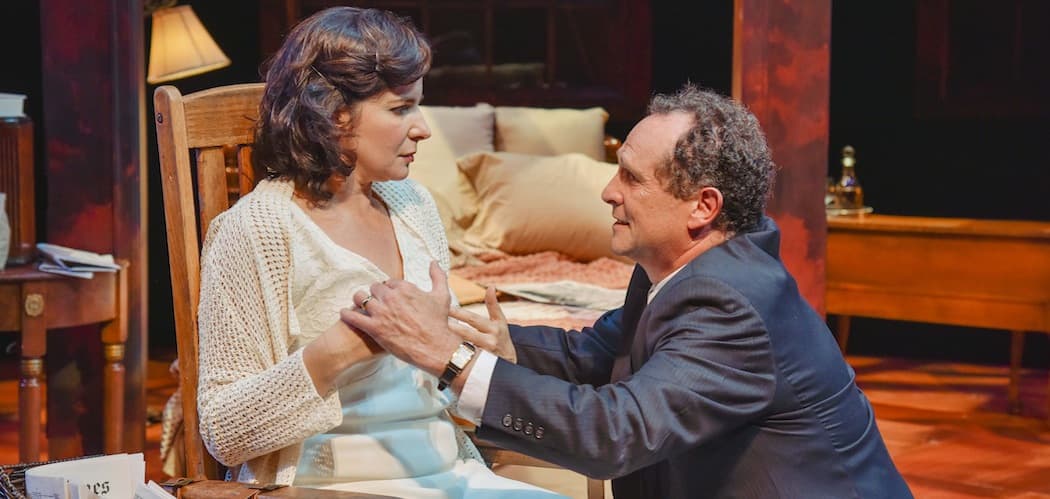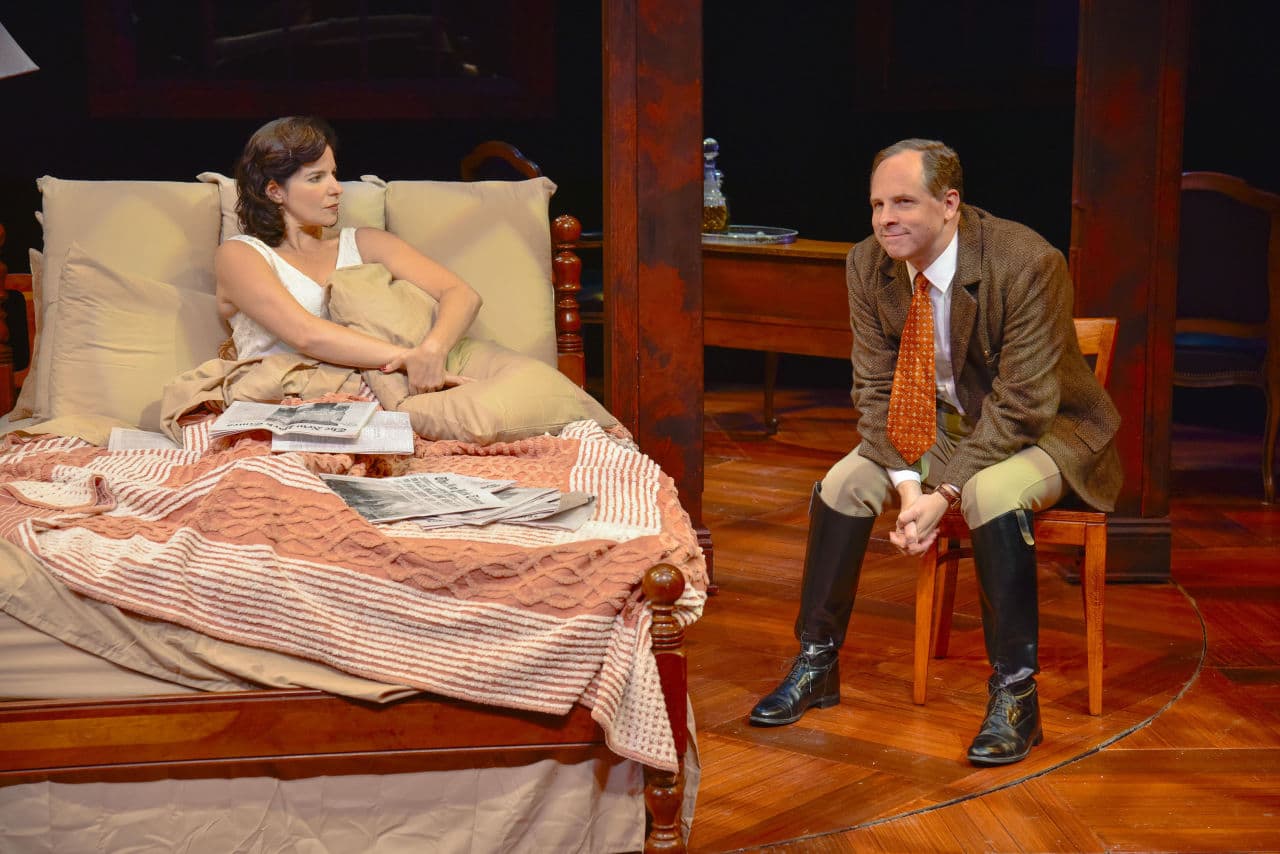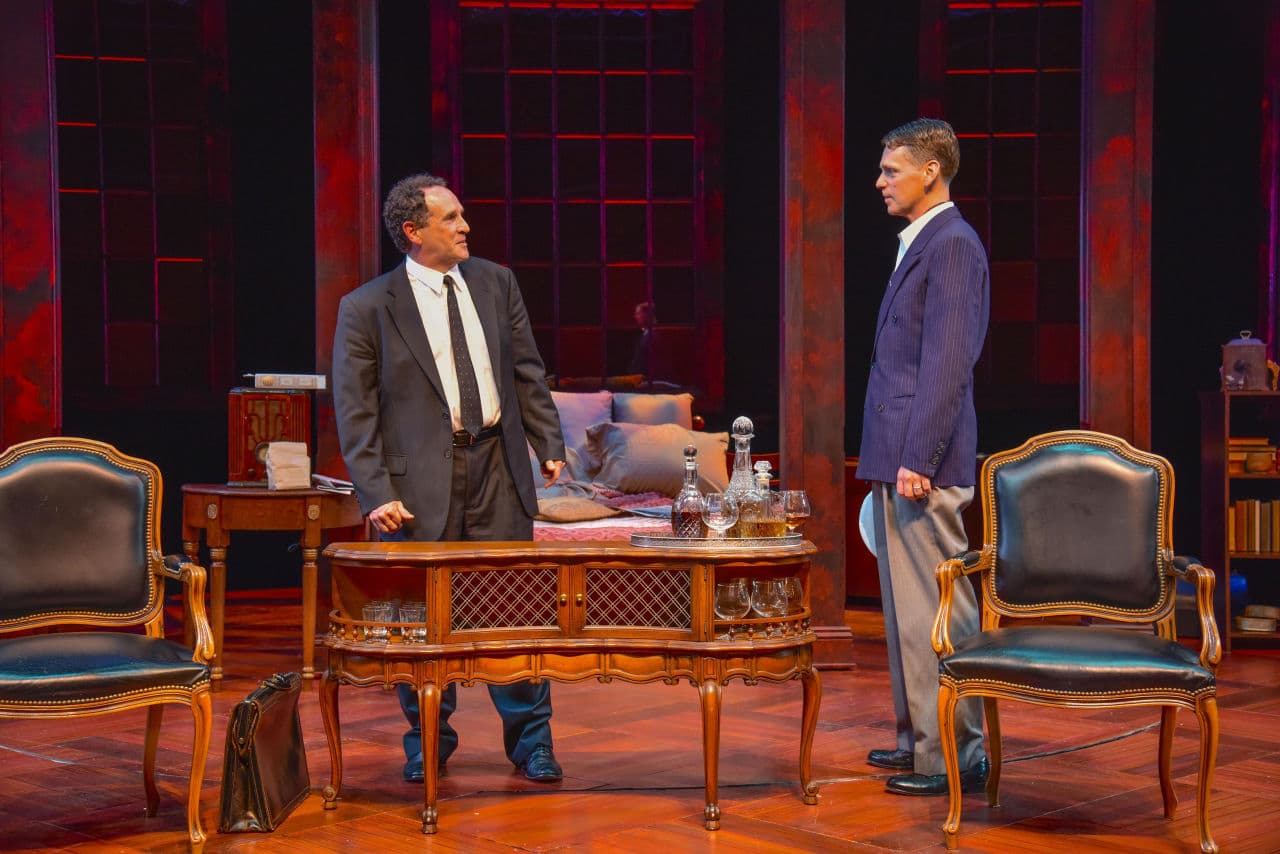Advertisement
New Rep's Fresh View Of Arthur Miller's Overlooked 'Broken Glass'

Seeking to celebrate the centennial of Arthur Miller’s birth, New Repertory Theatre artistic director Jim Petosa had an ace up his sleeve. “Broken Glass” is one of the great playwright’s later plays, and frequently overlooked. A commercial flop on Broadway (though it did garner Miller a Tony nomination for best play), it was received much better in the West End. Petosa produced the Washington, D.C.-area premiere of the show two years after its 1994 premiere, when he was leading the Olney Theatre Center in Maryland.
Now it’s 19 years later and lo and behold, the play still hasn’t been mounted professionally in Boston. So it may be an academic matter at this point, but New Rep is scooping up the distinction of presenting its Boston-area debut, in a production that runs through Sept. 27.
So is it any good? Sure, though not great. But the strength of this production exceeds that of the material. It’s a beautiful, multilayered production with much to savor — particularly Jeremiah Kissel’s central performance.
“Broken Glass” is set in late 1938, shortly after Kristallnacht (also known as the Night of Broken Glass), the extended pogrom in which some 30,000 German and Austrian Jews were violently rounded up and sent to concentration camps. (The streets were littered with shards of glass from broken windows.) Kissel plays Phillip Gellburg, a Brooklyn bank employee with a specialty in issuing foreclosures. His wife Sylvia (Anne Gottlieb), who seems obsessed with the bad news coming over from Germany, has inexplicably become paralyzed from the waist down. The doctors are stumped.

Kissel is spot-on from moment one, presenting a tightly coiled man who is clearly uncomfortable in his own skin. Gellburg has a complicated relationship with his ethnicity. He’s quick to point out that he’s the first Jew ever to work for his employer, but God help you if you mistake his last name for Goldberg. We quickly get the sense that he and Sylvia have some mysterious, deep seated issues, though it’s really not that hard to guess the gist of the matter.
A theatergoer could be forgiven for thinking the play is a mid-century chestnut; it has a musty feel to it, operating on the once-fashionable model of not only imbuing its characters with rich psychological depth, but making sure they all verbalize their inner conflicts in big “ta-da!” moments. Miller weaves a dense network of foreshadowing and symbolism, a trail of Freudian breadcrumbs that we follow toward an unambiguous resolution. (The play’s closing moments include the most on-the-nose physical metaphor you’re likely to see at the theater this season.) To a contemporary audience, its key revelations are far from shocking and its insights are familiar.
What makes the piece much more than just two hours worth of dissertation-baiting is how readily its literary proclivities translate to the on-its-feet experience of live theater. These characters are so well drawn, so rooted in the soil of human experience. And Petosa’s production is quite sensitively realized; it’s hard to envision a better-handled approach to the material.

Jon Savage’s excellent set proposes a circular playing space. Its outer rim revolves, bringing various economically rendered mise–en–scènes into play — the office of Gellburg’s ultra-WASP boss (an effective Michael Kaye), a sitting room in the Gellburg home, the doctor’s office where they seek a remedy. At the center of the stage — and of the Gellburgs’ psyches — is the marital bed. It sits there throughout, like a constant preoccupation.
Benjamin Evett, winner of the Elliot Norton Award for solo performance last season (the gripping “Albatross”), is Dr. Harry Hyman. Yes, the character’s last name is a not-so-subtle symbol pertaining to sexuality. The doctor vastly oversteps the bounds of professional propriety in his efforts to cure Sylvia. Evett delivers the affable geniality and physical confidence the role calls for. In Gellburg’s disbelieving words, this is indeed “a Jew who rides horses,” and Evett’s Dr. Hyman seems quite comfortable in his own (equestrian) boots. As the long-suffering Sylvia, Gottlieb navigates the role’s melodramatic bits to create a complex and engaging portrait.
Even if things start to drag a bit once the answers to this play’s big questions seem obvious to everyone but the characters, the detailed artistry of the work here is such that it's compelling until the end. Score one more for Arthur Miller.
Jeremy D. Goodwin contributes regularly to The Boston Globe, The ARTery (where he is also an editor), Berkshire Magazine and many other publications. See more of his work here. Follow him on Twitter here.